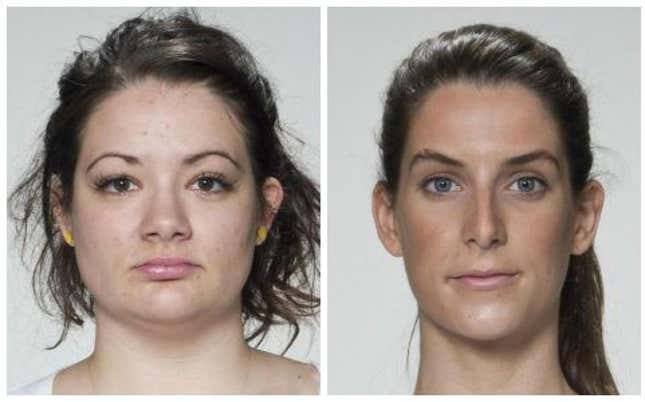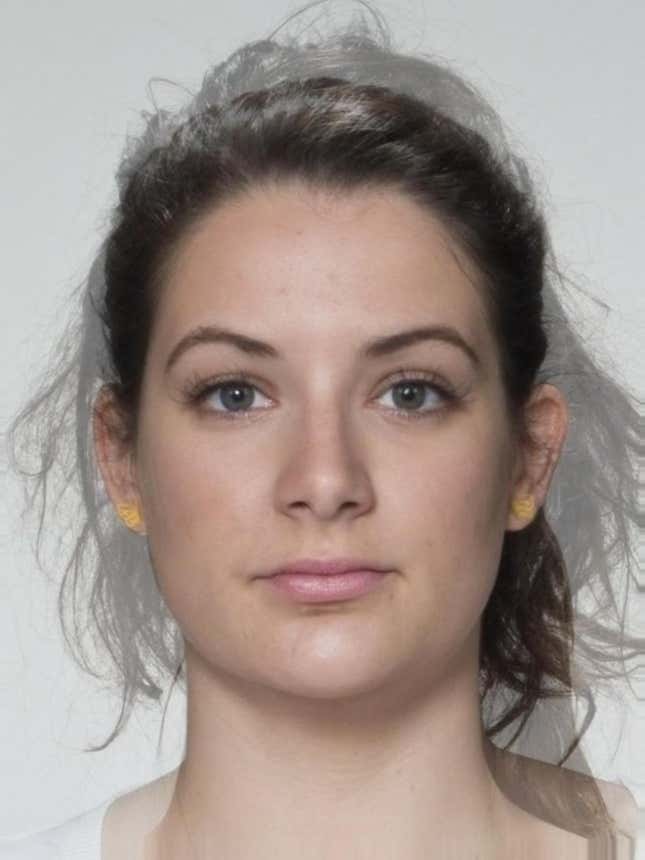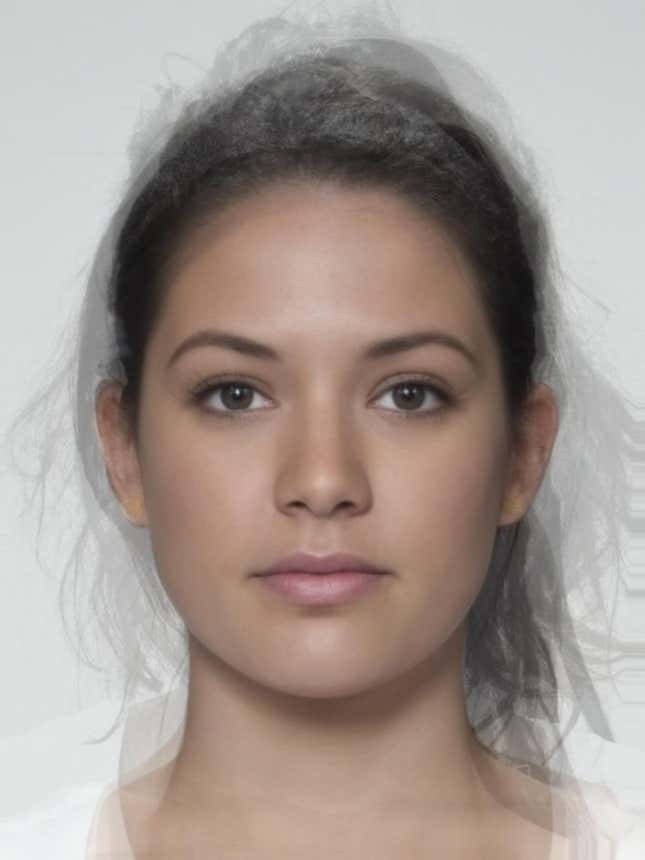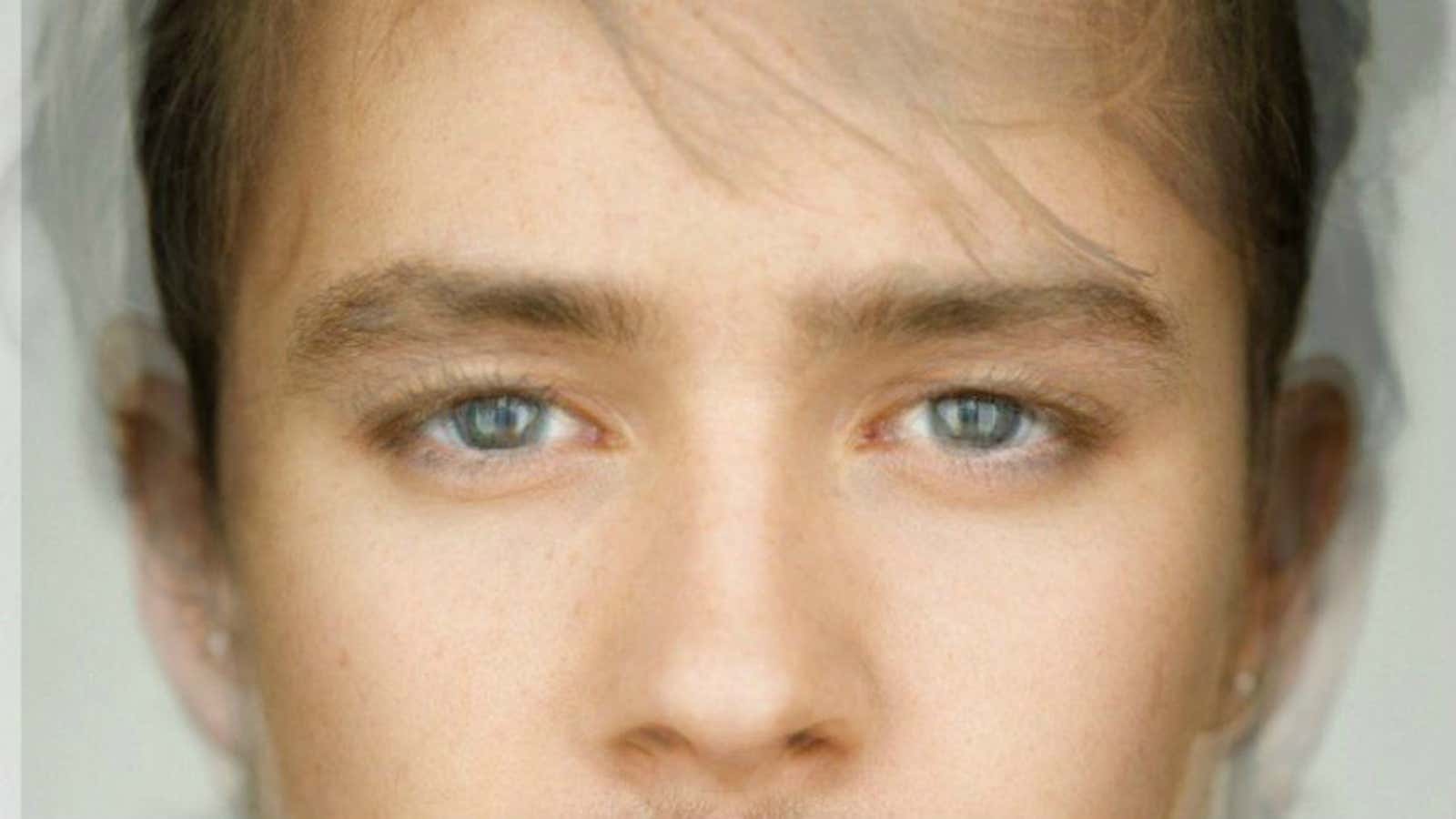Psychologists have postulated for some time that composites of faces tend to be more attractive than individual ones. It’s what’s known as the “averageness hypothesis,” first suggested by statistician and eugenics theorist Francis Galton in 1907 and demonstrated with computer-generated composites in 1990.
And you can see it in action for yourself.
Researchers at the University of Glasgow built a tool in 2009 (since updated) to demonstrate the effect of piling on more faces. And the results are still pretty striking.
Explore their interactive to see how the more faces you “add,” the more attractive a person becomes. Two faces together isn’t necessarily better than one, but once you get up to five or six, the composite consistently looks surprisingly good.




Evolutionary scientist Lisa DeBruine and psychologist Ben Jones run the site, called Face Research, which houses interactives and online experiments that analyze how we process faces. This tool is called the “Averager,” and there’s a celebrity version, too. (Oddly, Benedict Cumberbatch + Idris Elba + John Cho + Chris Pine looks a bit like a classic Ken doll.)
As the team tells Quartz, “averageness cannot fully explain attractiveness.” In a 1994 study researchers demonstrated that “hyper-attractive” faces (compiled from 15 particularly pretty faces) were rated higher than the average composite made from the general set of 60 faces. But as Face Research shows, if you “add” faces and take the average of their features, the composite generally is more attractive than any individual face. And the more you add, the more attractive the average.
Image by Pat David on Flickr, licensed under CC BY-SA 2.0.




